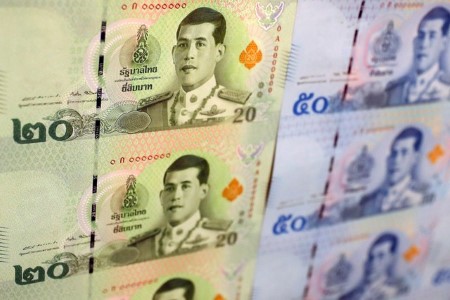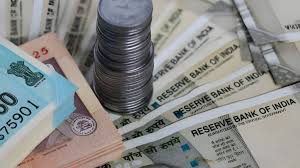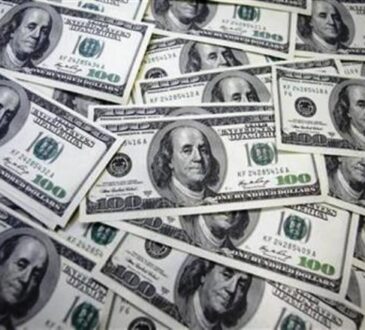
Taiwan dollar, Chinese yuan fall
Indonesian rupiah up slightly before CPI
Malaysian markets closed for holiday
By Archishma Iyer
Feb 1 (Reuters) –Asian currencies were mixed on Thursday as investors digested the U.S. Federal Reserves’ indications that it will not cut rates in March even as the central bank signalled policy easing was on the cards for the rest of the year.
The dollar was boosted overnight after Federal Reserve Chair Jerome Powell pushed back on the idea of a U.S. interest rate cut as soon as March, with investors now pricing in the May 1 meeting for the central bank to deliver its first cut.
At 0400 GMT, the dollar index – the greenback’s measure against six major rivals – was at 103.52, little changed from the previous day but near a seven-week high.
“Fed’s rate cuts uncertainty could remain the key factor that affect Asian assets over the near term. I think it’s hard to be quite bullish on Asian assets which could move sideways,” Poon Panichpibool, a markets strategist with Krungthai Bank said.
The Taiwan dollar TWD=TP and the yuan CNY=CFXS fell more than 0.1% each, while the Singapore dollar SGD=remained flat.
The rupiah IDR= was slightly up, while Indonesian stocks .JKSE rose 0.3%, ahead of a key inflation report, where it is expected that price pressures have likely eased.
“On inflation, policymakers appear clearly more comfortable compared to a few months ago. Headline inflation of around 2.5% this year is seen as manageable,” analysts from Bank of America said in a note.
The rupiah has emerged as one of the weaker currencies in emerging Asia, dropping more 2.3% on a year-to-date basis in light of a political instability in Southeast Asia’s largest economy, ahead of legislative and presidential elections later this month.
“The situation is still very fluid and there could be further headwinds if we do not see a clear first round winner and market starts to assign a higher degree of uncertainty on the policy outcome,” David Zhou, Multi Asset Investment Manager at abrdn said.
“That said, Bank Indonesia has sufficient tools to intervene and dampen volatility,” he added.
The South Korean won KRW=KFTC rose about 0.2% while its shares .KS11 advanced more than 1.3%, after a jump in its factory activity for the first time in 19 months in January, coupled with a upbeat exports data.
A slew of data on purchasing managers’ indexes across Asia revealed that the region’s factories delivered a largely patchy performance in January, with PMIs growing in South Korea and shrinking in Taiwan and the Philippines.
The Thai baht THB=TH rose about 0.2%, likely driven by influences of gold-related inflows into the market, according to Panichpibool.
Markets in Malaysia were closed on account of a public holiday.
HIGHLIGHTS:
** Indonesia’s 10-year benchmark yield
** POLL-Indonesia’s economy likely to have grown 5% in Q4
** Thai public debt-GDP ratio at 61.34% at end-Dec
|
Asia stock indexes and currencies at 0400 GMT |
||||||
|
COUNTRY |
FX RIC |
FX DAILY % |
FX YTD % |
INDEX |
STOCKS DAILY % |
STOCKS YTD % |
|
Japan |
JPY= |
+0.12 |
-3.84 |
.N225 |
-0.89 |
7.47 |
|
China |
CNY=CFXS |
-0.13 |
-1.12 |
.SSEC |
0.20 |
-6.08 |
|
India |
INR=IN |
+0.09 |
+0.29 |
.NSEI |
0.19 |
0.16 |
|
Indonesia |
IDR= |
+0.06 |
-2.35 |
.JKSE |
0.31 |
-0.58 |
|
Malaysia |
MYR= |
+0.00 |
-2.90 |
.KLSE |
0.02 |
4.01 |
|
Philippines |
PHP= |
+0.21 |
-1.39 |
.PSI |
-0.59 |
2.43 |
|
S.Korea |
KRW=KFTC |
+0.25 |
-3.25 |
.KS11 |
1.36 |
-4.68 |
|
Singapore |
SGD= |
+0.04 |
-1.51 |
.STI |
-0.23 |
-2.91 |
|
Taiwan |
TWD=TP |
-0.20 |
-2.01 |
.TWII |
-0.05 |
-0.28 |
|
Thailand |
THB=TH |
+0.20 |
-3.71 |
.SETI |
0.55 |
-3.10 |
Reporting by Archishma Iyer in Bengaluru; Editing by Christian Schmollinger




